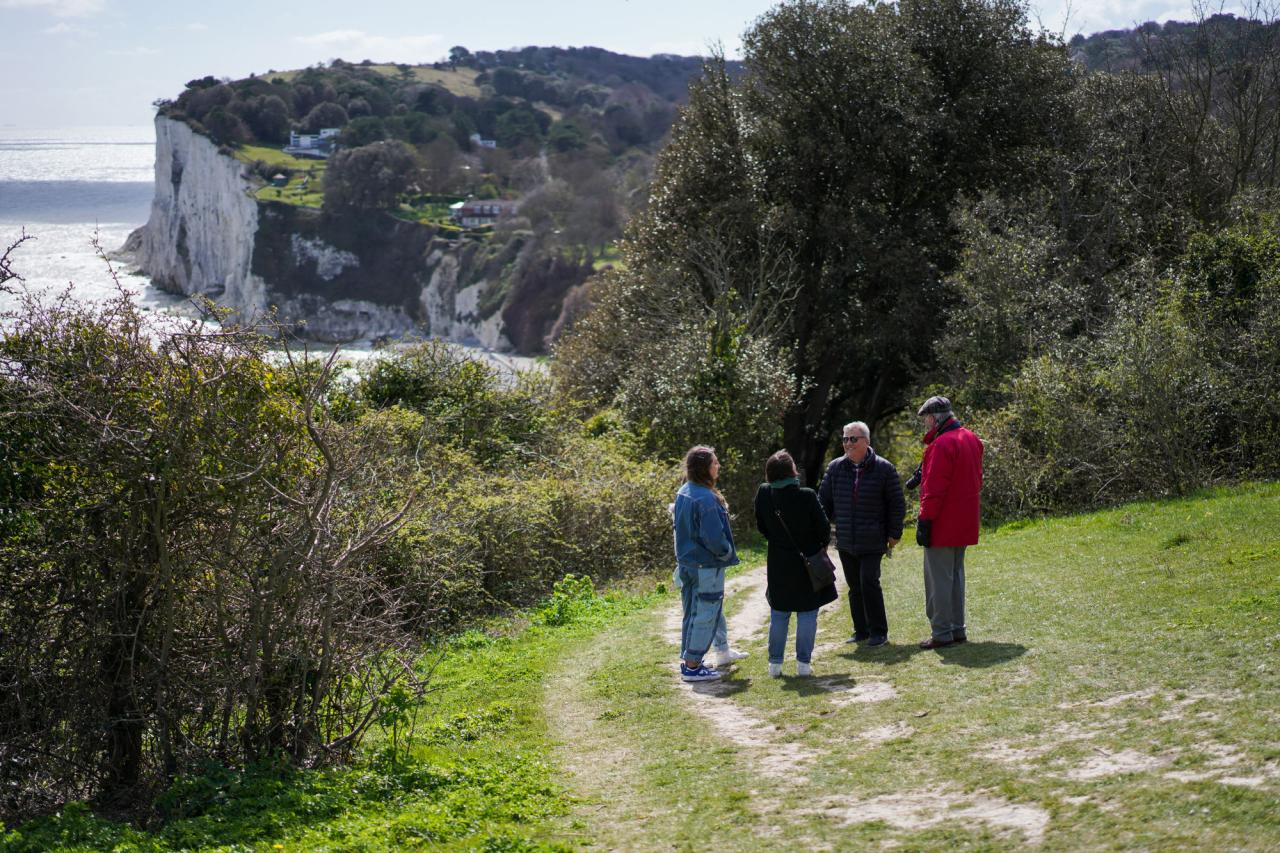England Tours For Seniors offer a unique opportunity to explore the rich history, stunning landscapes, and vibrant culture of England at a comfortable pace. From the bustling streets of London to the tranquil countryside of the Cotswolds, numerous destinations cater specifically to the needs and preferences of older travelers. This guide delves into the best options for senior-friendly tours, highlighting accessible accommodations, transportation choices, and engaging activities tailored for a memorable and enriching experience.
We’ll examine various tour itineraries designed with different interests and mobility levels in mind, ensuring that every senior traveler can find a perfect fit. We’ll also cover practical aspects like budgeting, health considerations, and the myriad ways to maximize enjoyment and minimize stress during your English adventure.
Transportation Options for Senior Travelers in England: England Tours For Seniors

Navigating England’s diverse landscape requires careful consideration of transportation options, particularly for senior travelers. The country offers a range of choices, each with its own advantages and disadvantages in terms of cost, accessibility, and convenience. Understanding these differences is crucial for planning a smooth and enjoyable trip.
Public Transportation in England: Trains and Buses
England boasts a comprehensive network of public transportation, including trains and buses. National Rail operates a vast train network connecting major cities and towns, while numerous bus companies serve local areas. Senior citizens often benefit from significant fare reductions. For example, many train companies offer “Railcard” options providing discounts for those over 60. Similarly, many bus operators provide discounted fares for seniors, often with specific day or week passes offering considerable savings.
Accessibility is also a key consideration. Most modern trains and buses are equipped with ramps, priority seating, and accessible toilets, making travel easier for those with mobility issues. However, older buses or less frequently used lines may have limited accessibility features. Advance booking is often advisable, particularly during peak seasons, to secure the best fares and seating, including seats with extra legroom.
Alternative Transportation Options for Seniors, England Tours For Seniors
Beyond public transport, private car hire and guided tours offer alternative solutions. Private car hire provides flexibility and convenience, allowing seniors to travel at their own pace and visit locations not easily accessible by public transport. This option, however, comes with the added cost of rental fees, insurance, and potentially fuel. Furthermore, driving in unfamiliar areas can be challenging.
Guided tours, on the other hand, eliminate the stress of navigation and provide insights into historical sites and cultural attractions. Many tour operators cater specifically to senior travelers, offering itineraries designed for comfort and ease, with options for shorter walking distances and more frequent rest stops. They often include transportation as part of the package, using comfortable coaches equipped with amenities suitable for older travelers.
Comparison of Transportation Modes for Senior Travelers
| Transportation Mode | Advantages | Disadvantages | Cost |
|---|---|---|---|
| Public Transportation (Trains/Buses) | Cost-effective (with senior discounts), widely available, accessible (mostly), environmentally friendly. | Can be crowded, requires planning and transfers, may lack accessibility on some routes, potential delays. | Variable, generally low to moderate with senior discounts. |
| Private Car Hire | Flexibility, convenience, door-to-door service, ability to visit remote areas. | Higher cost, requires driving skills and confidence, parking challenges in cities, potential for driving fatigue. | High, depending on rental duration and vehicle type. |
| Guided Tours | Stress-free travel, expert guidance, convenient transportation, often include entrance fees. | Less flexibility, fixed itineraries, can be more expensive than other options, may not cater to all interests. | High, varies depending on tour duration and inclusions. |
Accommodation Recommendations for Senior Travelers

Choosing the right accommodation is crucial for a comfortable and enjoyable trip to England. Senior travelers, in particular, benefit from accommodations that cater to their specific needs and preferences, ensuring a stress-free and memorable experience. This section details three accommodation types prevalent in England, highlighting their suitability for older adults.
Hotels Catering to Senior Travelers
Many hotels across England now offer senior-friendly amenities. These range from larger chains adapting their services to boutique hotels specializing in older guests’ needs. Key features often include accessible rooms with roll-in showers and grab bars, comfortable beds with adjustable heights, and readily available assistance with luggage and mobility. Some hotels also provide complimentary transportation services to local attractions or offer packages that include spa treatments or other wellness activities.
The advantages include a wide range of choices, varying levels of luxury and service, and often convenient locations. However, hotels can be more expensive than other options, and the impersonal nature of a large hotel may not suit all seniors. For example, the De Vere Beaumont Estate in Windsor offers accessible rooms and various packages tailored to older guests.
Senior-Friendly Bed and Breakfasts (B&Bs)
B&Bs provide a more intimate and personalized experience. Many smaller, family-run B&Bs adapt their facilities to accommodate senior travelers. This might include ground-floor rooms, easy chair access to the dining area, and readily available assistance from the owners. The advantages include a warm, welcoming atmosphere, personalized service, and often more affordable rates than hotels. However, the level of accessibility can vary significantly between B&Bs, and some may lack the range of amenities offered by larger hotels.
For instance, a charming B&B in the Cotswolds might offer a quiet, comfortable stay, but lack the same level of accessibility as a larger hotel.
Retirement Communities Offering Short-Term Stays
Some retirement communities in England now offer short-term or respite stays for seniors who are travelling. These accommodations often provide a high level of support and care, including assistance with daily living activities, organized social events, and on-site medical services. Amenities often include accessible rooms, communal dining areas, and recreational facilities. The advantages are significant for seniors needing extra assistance or preferring a supportive environment.
However, this type of accommodation is usually the most expensive and might feel less like a traditional vacation experience. Examples include some retirement villages that offer short-term let options for visitors, focusing on comfort and safety, albeit at a premium price.
Planning an England tour as a senior doesn’t have to be daunting. With careful consideration of accessibility, pace, and personal interests, a trip to England can be a truly rewarding experience. By utilizing the resources and information provided in this guide, seniors can confidently embark on a journey filled with historical discoveries, scenic beauty, and the warm hospitality of England.
Remember to prioritize comfort and choose options that align with your individual needs and preferences for an unforgettable adventure.

